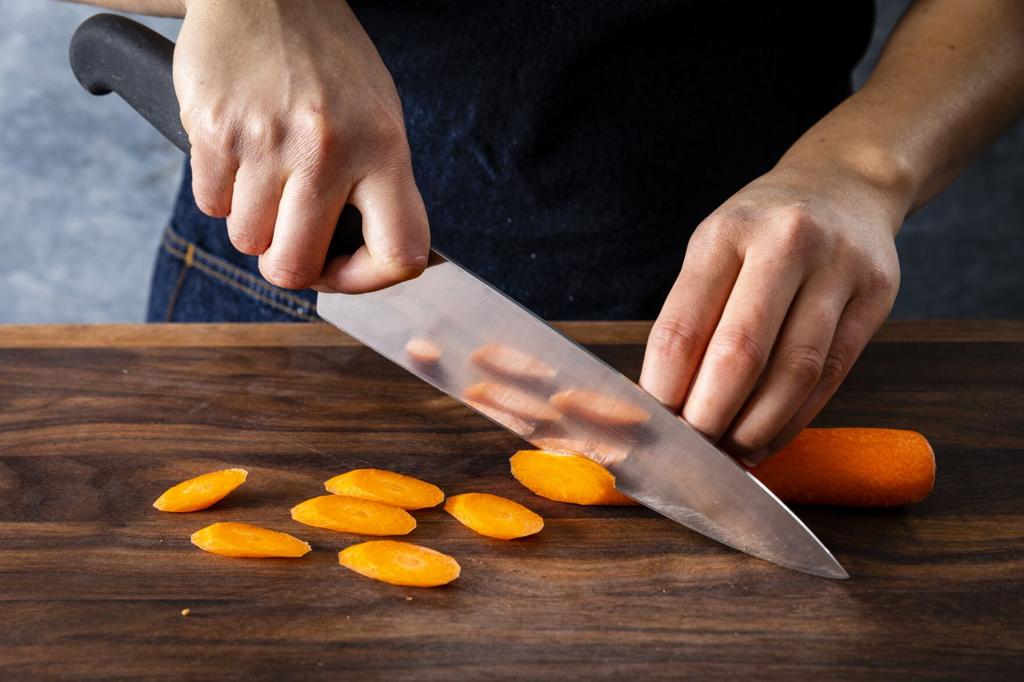For kitchen professionals, the durability and lifespan of their tools are of utmost importance. One of the most commonly asked questions among chefs and culinary enthusiasts is how long do German knives last? With their reputation for quality and precision, German knives are a staple in many kitchens. In this article, we will explore the factors that contribute to the longevity of these knives and how to ensure they remain a reliable culinary companion for years to come.

The Craftsmanship Behind German Knives
German knives are renowned for their exceptional craftsmanship and durability. Brands like Wsthof and Victorinox have set the standard for knife manufacturing, ensuring each piece is made with precision and care. The longevity of a German knife is largely attributed to the meticulous processes involved in its creation. For more insights into the craftsmanship and legacy of German knives, consider visiting this article on the legacy of Solingen, the knife capital of the world.
Material Matters: The Steel Used in German Knives
The type of steel used in German knives plays a crucial role in determining their lifespan. Most German knives are made from high-carbon stainless steel, known for its ability to resist rust and maintain a sharp edge. This material strikes a balance between hardness and flexibility, allowing the knife to withstand regular use without chipping or breaking.
The Role of Maintenance
While the materials and craftsmanship are foundational to a knife's longevity, proper maintenance is equally important. Regular sharpening, careful cleaning, and correct storage practices can significantly extend the life of your German knives. For detailed maintenance tips, you can visit this guide on cleaning Wsthof knives.
Comparing Lifespans: German Knives vs. Other Knives
When comparing the lifespan of German knives to other types, such as Japanese or ceramic knives, German knives often stand out for their durability. While Japanese knives are known for their sharpness and precision, they can be more brittle and prone to chipping. German knives, with their robust construction, are designed to handle a variety of tasks, from chopping vegetables to slicing through tougher meats.
Choosing the Right German Knife
Not all German knives are created equal, and choosing the right one can impact its longevity. Consider the knife's purpose, the type of steel used, and the brand's reputation. For a comprehensive review of some of the best options available, check out this review of Wsthof knives.
Extending the Life of Your German Knives
To maximize the lifespan of your German knives, it's essential to follow some basic care guidelines:
- Regular Sharpening: Use a sharpening stone or a professional sharpening service to maintain the blade's edge.
- Proper Cleaning: Hand wash your knives with mild detergent and dry them immediately to prevent rust and corrosion.
- Safe Storage: Store your knives in a dedicated knife block or magnetic strip to protect the blade from damage.
For more tips on maintaining your knives, you might find this knife care guide helpful.
Conclusion
In conclusion, German knives are a worthy investment for any kitchen professional seeking reliability and durability in their culinary tools. By understanding the factors that affect their longevity and practicing proper maintenance, you can ensure that your German knives remain a vital part of your kitchen arsenal for many years. Whether you're slicing, dicing, or chopping, these knives are designed to stand the test of time.

FAQs
How often should I sharpen my German knife?
It's recommended to sharpen your German knife every few months or when you notice a decline in its cutting performance. Frequent use may require more frequent sharpening.
Can German knives go in the dishwasher?
While some German knives are dishwasher-safe, it's best to hand wash them to preserve their edge and prevent potential damage from harsh detergents and high temperatures.
What is the best way to store my German knives?
Store your German knives in a knife block, on a magnetic strip, or in a protective sheath to keep the blades safe from damage and maintain their sharpness.


























